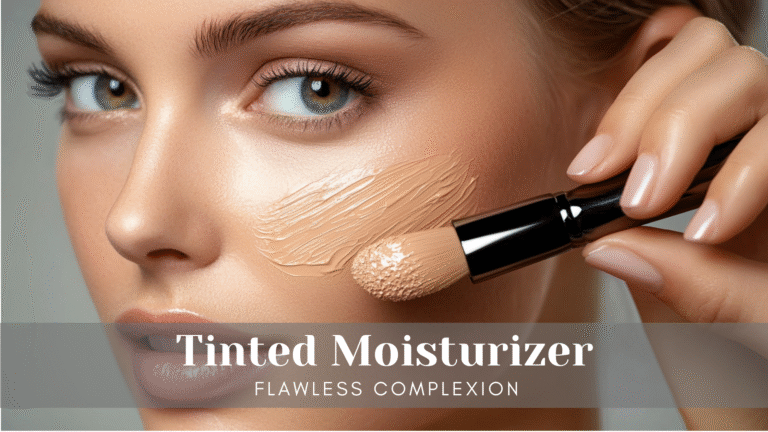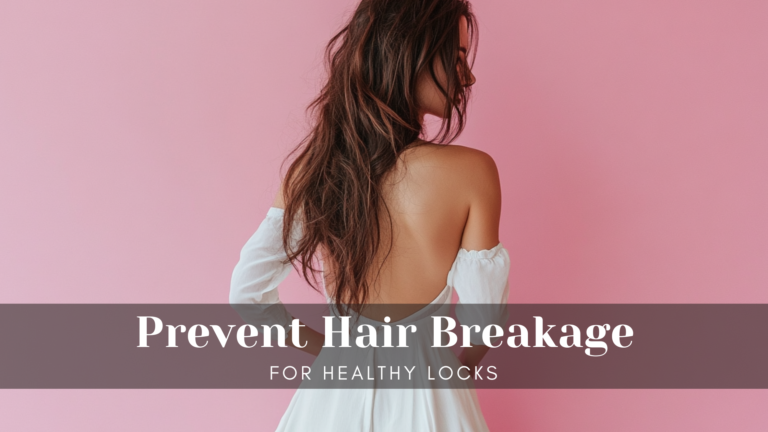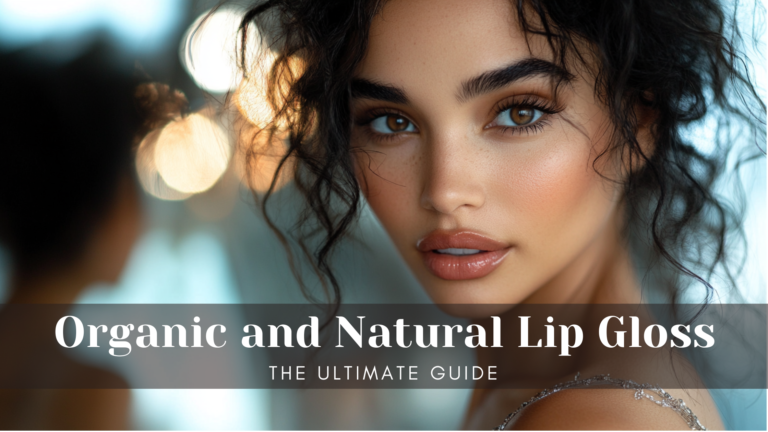Switching to natural toothpaste and mouthwash has become quite the trend, and for good reason. People are more conscious of what they’re putting in their mouths, and these products tend to skip the harsh chemicals. After all, true confidence starts from within, and a healthy smile can make all the difference. But, are they really as effective as the regular stuff? And what should you look out for when picking one? In this article, we’ll dig into the ins and outs of natural oral care options, giving you a clearer picture of what to expect.
Key Takeaways
- Natural toothpaste and mouthwash often use plant-based ingredients, avoiding synthetic chemicals.
- Fluoride in natural toothpaste is a topic of debate, with pros and cons depending on individual needs.
- Popular natural toothpaste brands include Davids, Hello, and Cocoshine, each offering unique benefits.
- Natural mouthwash options can help maintain oral health without alcohol or artificial flavors.
- Transitioning to natural products may require some adjustment, but many find it worthwhile for the gentler ingredients.
Understanding Natural Toothpaste and Mouthwash
What Makes Toothpaste and Mouthwash Natural?
Natural toothpaste and mouthwash steer clear of synthetic ingredients. You won’t find artificial colors, preservatives, or harsh chemicals in them. Instead, they rely on plant-based components that are gentler on your mouth. These products often use essential oils, like peppermint or eucalyptus, to provide a refreshing taste and antibacterial properties.
Benefits of Using Natural Oral Care Products
Switching to natural oral care products can be a game-changer for those with sensitive teeth or gums. Here’s why:
- Gentler on the mouth: Without harsh chemicals, natural products are less likely to cause irritation.
- Eco-friendly: Many natural products come in biodegradable or recyclable packaging.
- Free from artificial flavors and colors: This reduces the risk of allergic reactions.
Choosing natural oral care products is about more than just avoiding certain chemicals; it’s about embracing a holistic approach to oral health that aligns with a more sustainable lifestyle.
Common Ingredients in Natural Toothpaste and Mouthwash
Natural toothpaste and mouthwash often contain ingredients that not only clean but also protect your teeth. Here’s a quick rundown:
- Baking soda: Known for its mild abrasive properties, it helps remove surface stains.
- Xylitol: A natural sweetener that also helps prevent cavities.
- Coconut oil: Used for its soothing properties and ability to combat bacteria.
These ingredients work together to keep your mouth healthy without the need for synthetic additives.
Top Natural Toothpaste Brands to Consider

Davids Premium Natural Toothpaste
Davids Premium Natural Toothpaste is a standout in the world of natural oral care. Crafted with a commitment to sustainability, this toothpaste is free from artificial flavors, sweeteners, and colors. Its formula emphasizes natural ingredients like calcium carbonate, which gently polishes teeth, and xylitol, known for its cavity-fighting properties. The peppermint flavor offers a refreshing finish, making your brushing routine a pleasant experience. This toothpaste is packaged in a recyclable metal tube, reflecting its eco-friendly ethos. If you’re looking for a toothpaste that combines effective cleaning with environmental consciousness, Davids is a top choice.
Hello Mighty Multitasker Fluoride Toothpaste
Hello’s Mighty Multitasker Fluoride Toothpaste is perfect for those who want a comprehensive oral care solution. It’s formulated with stannous fluoride, which is clinically proven to fight plaque and gingivitis while preventing tooth sensitivity. The toothpaste avoids artificial sweeteners and preservatives, ensuring a natural brushing experience. The minty flavor, while robust, leaves your mouth feeling exceptionally clean. This toothpaste is a go-to for anyone seeking multiple oral health benefits in one product.
Cocoshine Whitening Toothpaste
If you’re aiming for a whiter smile, Cocoshine Whitening Toothpaste could be your new best friend. This toothpaste leverages the natural whitening power of activated charcoal, which helps remove stains without the harshness of traditional whitening agents. It’s formulated to be gentle on enamel while providing a deep clean. Users often praise its ability to brighten teeth naturally over time. Cocoshine is ideal for those who want to enhance their smile with a product that’s both effective and mindful of dental health.
Exploring Natural Mouthwash Options
Benefits of Natural Mouthwash
Natural mouthwashes are gaining popularity for several reasons. First off, they steer clear of alcohol, which can dry out your mouth. Many people find alcohol-based mouthwashes too harsh, so natural alternatives offer a gentler option. Plus, they often include herbal extracts and essential oils that not only freshen breath but also promote oral health. Ingredients like tea tree oil and peppermint oil can help reduce bacteria and inflammation in the mouth, making them a great choice for those with sensitive gums.
Popular Natural Mouthwash Brands
When it comes to choosing a natural mouthwash, there are several brands that stand out:
- Tom’s of Maine: Known for its commitment to natural ingredients, Tom’s offers a range of flavors and formulas.
- TheraBreath: This brand focuses on combating bad breath with natural ingredients and is free from artificial dyes and flavors.
- Herbal Mouthwash: Handcrafted in small batches, this mouthwash includes ingredients like Aloe Vera and Peppermint Oil, promoting holistic health.
How to Choose the Right Natural Mouthwash
Picking the right mouthwash can feel overwhelming with so many choices out there. Here are some tips to help:
- Identify Your Needs: Are you looking for a mouthwash that fights bad breath, or do you need one that helps with gum health?
- Check the Ingredients: Look for key natural ingredients like xylitol, which can help prevent cavities, or aloe vera for soothing irritated gums.
- Consider Sensitivities: If you have allergies, be sure to check for any potential allergens in the ingredients list.
Switching to a natural mouthwash can be a refreshing change for your oral care routine. It’s all about finding the right balance of freshness and health benefits that works for you.

The Role of Fluoride in Natural Oral Care
Fluoride in Natural Toothpaste: Pros and Cons
Fluoride is a naturally occurring mineral often found in both conventional and some natural toothpastes. It’s known for its ability to strengthen tooth enamel and combat cavities, making it a staple in dental care. However, its inclusion in natural products stirs debate. Some argue that fluoride’s benefits in preventing tooth decay are unmatched, while others prefer to avoid it due to potential health concerns.
- Pros:
- Strengthens enamel
- Reduces cavities
- Widely endorsed by dental professionals
- Cons:
- Potential health risks if ingested in large amounts
- Environmental concerns regarding its production
- Some prefer fluoride-free alternatives for personal reasons
Alternatives to Fluoride in Natural Products
For those wary of fluoride, several alternatives claim to offer similar benefits without the controversies. Ingredients like hydroxyapatite and xylitol are gaining attention. Hydroxyapatite, a naturally occurring mineral, is said to remineralize teeth, while xylitol, a sugar alcohol, helps reduce cavity-causing bacteria.
- Hydroxyapatite: Mimics natural tooth enamel, aiding in remineralization.
- Xylitol: Reduces harmful bacteria, promoting a healthier oral environment.
- Herbal Extracts: Ingredients like neem and tea tree oil offer antibacterial properties.
Expert Opinions on Fluoride Use
Dental experts often recommend fluoride for its proven track record in oral health. However, they acknowledge the growing demand for fluoride-free options. Many professionals suggest a balanced approach, considering personal health needs and preferences.
“While fluoride remains a key player in dental health, understanding its role and exploring alternatives can help individuals make informed choices about their oral care routine.”
For more insights into the importance of fluoride in dental health, you can explore Fluoride’s role in dental care.
How to Transition to Natural Oral Care Products
Tips for Switching to Natural Toothpaste and Mouthwash
Thinking about making the switch to natural oral care products? It might seem a bit overwhelming at first, but it doesn’t have to be. Here’s a simple guide to get you started:
- Research Ingredients: Before you buy, check out the ingredients. Look for plant-based components like aloe and green tea, and avoid harsh chemicals.
- Start Slowly: Don’t rush. Introduce one product at a time to see how your mouth reacts.
- Consider Your Needs: If you’re sensitive to fluoride, opt for a fluoride-free option. If you’re concerned about whitening, some natural toothpastes use hydroxyapatite instead.
Understanding the Differences Between Natural and Conventional Products
Natural products often boast ingredients like xylitol and essential oils, while conventional ones might have synthetic flavors and preservatives. This difference can impact how your mouth feels after brushing or rinsing. Natural toothpaste tends to be gentler, which is great for people with sensitive gums.
What to Expect When Making the Switch
Switching to natural oral care might feel different at first. You might notice a change in texture or flavor. It’s normal for natural toothpaste to foam less, but that doesn’t mean it’s less effective. Give your mouth some time to adjust. You might find your teeth feel cleaner and fresher with fewer artificial additives.
Transitioning to natural oral care is like swapping out your old car for a new eco-friendly model. It might take a little getting used to, but in the end, you’re doing something good for yourself and the planet. Plus, with options like bamboo toothbrushes and biodegradable floss, you’re reducing your environmental impact even more.
Evaluating the Effectiveness of Natural Oral Care

Do Natural Toothpastes Prevent Cavities?
When it comes to cavity prevention, natural toothpastes are often put under the microscope. The big question is whether they can truly hold their own against traditional options. Many natural toothpastes skip fluoride, a key ingredient known for its cavity-fighting abilities. Instead, they use alternatives like hydroxyapatite and xylitol. While some studies suggest these ingredients can help strengthen enamel and reduce decay, the jury’s still out on whether they’re as effective as fluoride. Dentists often recommend keeping an eye on the ingredient list if you’re avoiding fluoride, ensuring the toothpaste has other cavity-fighting components.
The Science Behind Natural Mouthwash
Natural mouthwashes have gained popularity for their gentle approach, often using essential oils and plant extracts. But do they work? These mouthwashes aim to freshen breath and maintain oral health without harsh chemicals. Essential oils like tea tree and peppermint are known for their antibacterial properties, which can help reduce plaque and gingivitis. However, the effectiveness can vary widely between brands. Some natural mouthwashes might not offer the same level of protection against bacteria as conventional ones, which often contain alcohol and chlorhexidine.
Real User Reviews and Experiences
User experiences with natural oral care products are mixed. Many appreciate the absence of synthetic chemicals and the use of plant-based ingredients. However, some users report that natural toothpastes don’t foam as much, which can feel different if you’re used to the bubbly texture of regular toothpaste. The taste can also be a hit or miss, with some loving the subtle flavors and others finding them too bland.
Switching to natural oral care is a personal journey. It’s about finding what works for you and your smile. Just remember, what feels right for one person might not be the same for another.
For those interested in the benefits of herbal dentifrices, it’s essential to weigh both the pros and cons, considering effectiveness and personal preferences.
Addressing Common Concerns About Natural Oral Care
Are Natural Products Safe for Everyone?
Switching to natural oral care products often raises safety questions. Natural doesn’t always mean safe for everyone. Some ingredients, although natural, can cause allergic reactions. For instance, certain essential oils used for flavoring can be irritants for some individuals. It’s crucial to read labels and, if necessary, consult with a healthcare provider to ensure that the product is safe for you.
Potential Allergens in Natural Toothpaste and Mouthwash
Natural oral care products can contain ingredients like essential oils, herbal extracts, and plant-derived substances. While these are generally safe, they can be potential allergens for some people. Here’s a quick list of common allergens:
- Tea Tree Oil: Known for its antibacterial properties, but can cause skin irritation.
- Peppermint Oil: Often used for flavor, but may trigger allergies in sensitive individuals.
- Cinnamon Oil: Provides a spicy flavor, yet can be a skin irritant.
It’s always a good idea to perform a patch test before using a new product extensively.
Debunking Myths About Natural Oral Care
There’s a lot of chatter about natural oral care products, and not all of it is true. Let’s clear up some common myths:
- Natural Products Aren’t Effective: Many believe natural products don’t work as well as conventional ones. However, ingredients like xylitol and hydroxyapatite have been shown to be effective in fighting cavities and strengthening enamel.
- All Natural Products Are Chemical-Free: This isn’t true. Everything is made of chemicals, whether natural or synthetic. The key is understanding which chemicals are beneficial and which are not.
- Natural Products Are Always Better: While they can be gentler on the environment and your body, this doesn’t automatically make them superior. It’s about finding what works best for your individual needs.
Transitioning to natural oral care requires understanding your own needs and preferences. It’s not just about jumping on the latest trend but finding products that truly fit your lifestyle.
Conclusion
So, there you have it. Picking the right natural toothpaste or mouthwash isn’t just about the label. It’s about what works for you and your smile. Whether you’re all about that fluoride life or prefer to go without, there’s something out there for everyone. Natural options can be just as effective, but it’s all about finding what fits your needs. At the end of the day, keeping those teeth clean and healthy is what really matters. So, try a few, see what you like, and keep brushing!
Frequently Asked Questions
What makes toothpaste and mouthwash natural?
Natural toothpaste and mouthwash are made without synthetic chemicals, colors, or preservatives. They use plant-based ingredients that are usually gentler on your mouth.
Are natural oral care products effective?
Yes, natural products can clean your teeth and mouth effectively. However, some might lack fluoride, which helps prevent cavities, so it’s important to choose based on your needs.
What are common ingredients in natural toothpaste?
Common ingredients include baking soda, coconut oil, and essential oils. Some may also contain fluoride or alternatives like nano-hydroxyapatite.
Is fluoride necessary in toothpaste?
Fluoride helps prevent tooth decay and is recommended by dentists. Some natural toothpastes include it, while others use alternatives to strengthen teeth.
Can natural toothpaste cause allergies?
Some people might be allergic to certain plant-based ingredients. It’s important to check the label if you have known allergies.
How do I switch to natural oral care products?
Start by trying different natural products to see what you like. Be patient, as it might take time to adjust to the new taste and feel.







I don’t think the title of your article matches the content lol. Just kidding, mainly because I had some doubts after reading the article.
Your article helped me a lot, is there any more related content? Thanks!
I don’t think the title of your article matches the content lol. Just kidding, mainly because I had some doubts after reading the article.
Thanks for sharing. I read many of your blog posts, cool, your blog is very good.
Thank you for your sharing. I am worried that I lack creative ideas. It is your article that makes me full of hope. Thank you. But, I have a question, can you help me?
Your article helped me a lot, is there any more related content? Thanks!
Your point of view caught my eye and was very interesting. Thanks. I have a question for you.
Thank you for your sharing. I am worried that I lack creative ideas. It is your article that makes me full of hope. Thank you. But, I have a question, can you help me?
Can you be more specific about the content of your article? After reading it, I still have some doubts. Hope you can help me.
I don’t think the title of your article matches the content lol. Just kidding, mainly because I had some doubts after reading the article.
Thank you for your sharing. I am worried that I lack creative ideas. It is your article that makes me full of hope. Thank you. But, I have a question, can you help me?